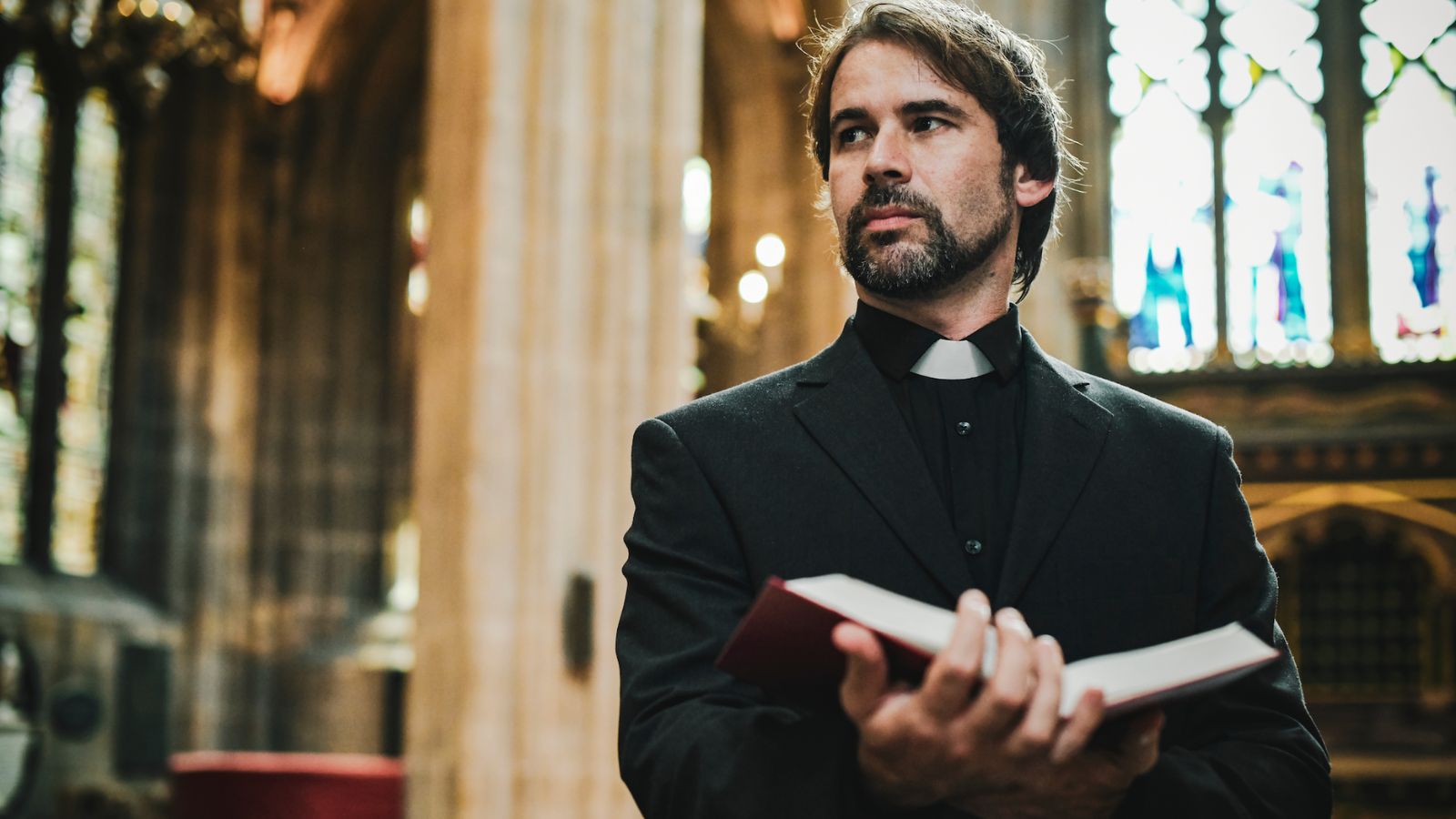Christian communities around the globe face difficulties adjusting to the new realities of today’s world. And in the quest for a solution, we see many conflicts emerge. Today, we’d like to share 20 things dividing Christians, especially in the areas of faith, morality, and social justice.
LGBTQ+ Acceptance

The acceptance of LGBTQ practices within the Christian community is a major cause for debate, as we see some liberally embrace them while others conservatively hold onto their traditional views. For instance, Pew Research reveals that 62% of Protestants are in support of same-sex marriages, while 33% are in complete opposition to them.
Women in Leadership

The role of women in church leadership is so conflicting that Regent University says there is perhaps no issue that’s more hotly debated in Christian communities. Arguments stem from the conflicts between the progressive, modern views on women having the same rights as men and the traditional views on male-dominated churches backed by the Bible.
Political Allegiances

Political views create significant rifts, and sometimes these rifts are so intense that they drive people away from their churches. We have Christians engaged in arguments on issues such as immigration and healthcare, and we also have some who believe these political stances have no place in the church at all.
Environmental Stewardship

Opinions on environmental stewardship vary widely among Christians, with some advocating for robust action on climate change and viewing it as a moral imperative, while others prioritize economic concerns or are skeptical of the science. These differing perspectives have led to conflicts over church policies, initiatives, and sometimes even personal relationships within the congregation.
Abortion

Abortion remains a deeply polarizing topic, with many Christians opposing it based on their understanding of the sanctity of life. The opposing party supports access to reproductive healthcare, citing compassion and women’s rights. This issue often surfaces in political discourse, further exacerbating divisions within the church and influencing voting behaviors among congregants.
Social Justice

Issues such as racism, inequality, and police reform have also become significant points of debate. Some Christians prioritize advocacy and activism, seeing it as a core part of their faith, while others focus more on personal piety and evangelism. These differing priorities cause friction within congregations, affecting church missions and community outreach efforts.
Interpretation of Scripture

Differences in scriptural interpretation can lead to major theological disputes, with literal versus metaphorical readings of the Bible influencing beliefs about creation, miracles, and end-times prophecy. A great example is shared by Johns Hopkins University, where the simple statement “Father, forgive them,” with context, sparks debate about the interpretation of Luke 23:43.
Interfaith Relations

Relationships with other religions is another divisive issue. And while we see some Christians advocating for interfaith dialogue and cooperation, promoting understanding and peace, others believe in maintaining a clear distinction between Christianity and other faiths, wary of compromising their religious identity.
Modern Worship Practices

Modern worship practices, including contemporary music and casual services, are popular in many churches but controversially berated in others. Traditionalists often prefer hymns and formal liturgy, believing these practices better honor God. And the resulting clash of preferences has led to disagreements over worship styles, so much so that it now affects service attendance.
Technology in Church

The use of technology in church services, such as online streaming and digital outreach, has grown but remains divisive as well. Some see it as a way to reach more people and stay relevant, while others fear it detracts from the sacredness of in-person worship and community. This issue influences church budgets and resource allocation.
Prosperity Gospel

The prosperity gospel, which teaches that faith can lead to financial and physical well-being, is a contentious topic for debate. Critics argue that it distorts Christian teachings and exploits believers, while supporters claim it inspires hope and generosity. This theological debate affects how churches approach wealth and giving, often influencing sermons and financial planning.
Evolution vs. Creationism

As Goshen University shares, there’s also the debate between evolution and creationism that many Christians find themselves caught up in. Some accept scientific explanations for the origin of life, integrating them with their faith, while others hold to a literal interpretation of the Genesis creation account. This issue influences educational choices and theological discussions, and can even affect church membership.
Charismatic Gifts

The use of charismatic gifts, such as speaking in tongues and prophecy, is embraced by some denominations and rejected by others. Beliefs about the continuation or cessation of these gifts lead to differing worship practices and can cause divisions within and between congregations, sometimes resulting in the formation of separate churches.
Alcohol Use

Attitudes toward alcohol vary among Christians, with some denominations allowing moderate drinking, viewing it as permissible within biblical limits, while others advocate for total abstinence based on moral and health concerns. These differing views influence church policies and social interactions, and they affect community events and celebrations as well.
Divorce and Remarriage

Divorce and remarriage are sensitive topics within Christian communities, where traditional views often see marriage as a lifelong covenant, discouraging divorce except in extreme circumstances. However, more progressive perspectives offer grace and support for those who have experienced marital breakdown, affecting pastoral care and church support programs.
Mental Health

Approaches to mental health within churches can be divisive. While some advocate for professional counseling and medication, seeing mental health as important as physical health, others emphasize prayer and spiritual solutions, sometimes stigmatizing those who seek secular help. This affects church support systems, pastoral care, and community resources.
Mission Strategies

Strategies for missions and evangelism can vary widely, and we see some Christians emphasize local community service and social justice as expressions of the gospel, while others focus on traditional evangelism and global missions. These differing approaches can cause tension over how resources are allocated and how ministries are prioritized, and they can affect congregational support, too.
Handling Scandals

Responses to scandals within the church, such as abuse or financial misconduct, can be polarizing, too. Some advocate for transparency and accountability, pushing for reforms, while others prioritize forgiveness and restoration. These differing views affect church policies and trust within the community, and, more importantly, can influence member retention.
Homeschooling vs. Public Education

The choice between homeschooling and public education divides some Christian parents. And while homeschooling is favored by those wanting to incorporate faith-based curricula and protect children from secular influences, public education is supported by others for its diversity and broader opportunities. These have an effect on community cohesion and church-sponsored educational programs.
Theological Education

The importance and type of theological education have also been contentious issues, with some valuing formal seminary training for clergy to ensure a deep understanding of doctrine and pastoral care. Others prefer informal, on-the-job training, believing it keeps ministers more connected to their congregations’ needs.
Up Next: 18 Cities in the US That Are So Bad You Won’t Want to Visit

While there are many beautiful cities in the U.S. that are well worth a visit, there are also some that you may want to avoid. This is largely due to high crime rates or issues with quality of life. Here are 18 U.S. cities that you won’t want to visit.
18 Cities in the US That Are So Bad You Won’t Want to Visit
19 American Cities That Disappoint Visitors So Much They Wish They Never Went

The United States is a vast country with over 109,000 cities and towns and many popular tourist hotspots, promising visitors fascinating history, famous landmarks, natural wonders, impressive architecture, and cultural delights. But not every city lives up to the hype! Here, we explore 19 American destinations that often leave visitors underwhelmed.
19 American Cities That Disappoint Visitors So Much They Wish They Never Went
19 Signs That Say You’ve Officially Entered Old Age

Old age comes for us all, though we do our best to resist it for as long as possible. But aging isn’t only gray hair, wrinkled skin, and yelling at kids to get off your lawn. Here are 19 signs you’ve realized you’re no longer the young stud you once were!

